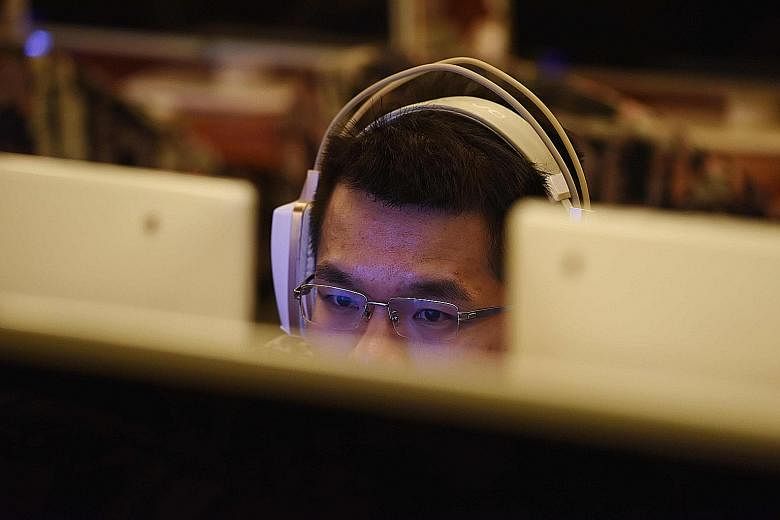Chinese authorities have implemented measures this week to further tighten control over the online space and wall off access to content it deems undesirable to its citizens.
At least one telecoms carrier, Guangzhou Huoyun Information Technology, has received a directive to start blocking virtual private networks (VPN) used to circumvent the Great Firewall, China's Internet censorship mechanism, reported Reuters on Thursday.
VPN services are used by Chinese Internet users to access overseas search engines such as Google and social media websites like Facebook that are banned in China.
Online news and livestreaming platforms also came under closer scrutiny this week as China extends control of its cyberspace, which it believes should have limits similar to real-world borders and subject to its sovereign laws.
Filtering by Chinese telecoms - required under a law that will take full effect next March - means more overseas VPN services are likely to become unusable in the months ahead.
Observers say this is a tactic to ensure social stability, with a top-level government reshuffle at the 19th Party Congress expected to take place by October.
On Tuesday, Beijing Internet regulators gathered representatives from the country's top online news providers, including Tencent, Baidu and Toutiao, and ordered them to strengthen self-censorship of offensive content, such as reports that "distort the history of China and the (Communist) Party, misinterpret policy directives and promote abnormal values".
-
Tactics precede party congresses
-
Tighter media and Internet controls have also preceded past Communist Party congresses, which take place every five years.
NOV 2012: 18TH CONGRESS
Two months before the big event, over 4,000 media and education-related microblogs were shut down. The authorities said the accounts impersonated well- known media personalities and real media outlets such as CCTV, and were used for extortion and fraud.
In October, a state agency used a meeting of top provincial Internet information officers to warn news and commercial websites of their duty to report "responsibly and positively" on the party congress, and that the authorities would "resolutely investigate and deal with harmful information, spreading of rumours and vulgar information".
OCT 2007: 17TH CONGRESS
Half a year before the congress, Beijing released a top-level circular stressing the importance of "strengthening the construction of Internet culture".
The state regulator for news and Internet publications interpreted this as the need for "civilised online publishing and to purify the online publishing space".
In June that year, China announced that a joint operation by the Ministry of Public Security, the Central Propaganda Department and other agencies had taken down more than 100 websites that spread pornography and "other harmful information".
On the same day, China's top cyberspace agency and its anti-pornography office said they will increase oversight of livestreaming platforms to prevent the Internet environment from being "polluted by unhealthy or illegal information".
The latest clampdowns come after two days of partial WhatsApp blockage in China following the death of Nobel Peace laureate Liu Xiaobo last week.
Lianhe Zaobao's website was also blocked by the Chinese firewall during the same period, although it is now back to normal. Experts see a link between events deemed politically sensitive by Beijing and tighter Internet and information control in China.
Associate Professor Fu King-wa, an expert on Chinese media with the University of Hong Kong (HKU), noted that the WhatsApp outage came after users began to circulate pictures related to the Chinese dissident on the platform.
"In 2014, Instagram was similarly blocked after people began posting pictures of the Umbrella Revolution in Hong Kong, which people in the mainland could see," he told The Straits Times.
The measures also come on the heels of multiple Internet-related regulations such as on procurement of critical network infrastructure and the controversial new Cybersecurity Law that took effect last month.
More than 90 per cent of Chinese netizens access news through their mobile phones, according to a survey by the Chinese Academy of Social Sciences last year.
The new laws show that China's vision of centralised cyber control is coming together, said Mr David Bandurski, an editor at HKU's China Media Project.
"We can be sure that as the news in China increasingly goes digital, and as television goes mobile, the Cyberspace Administration of China's power will grow," he wrote on his blog.

